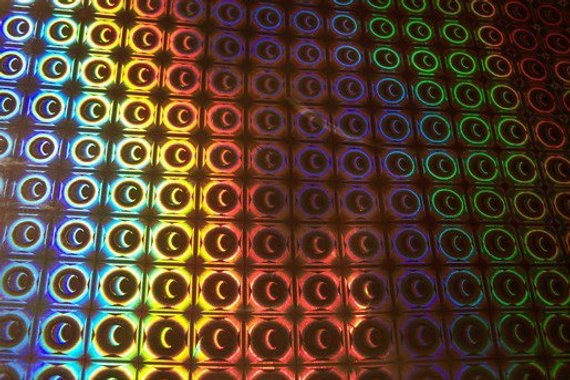G.E. discovers how to put 500GB on a disc; eventual Blu-ray killer?


It's merely a lab success at this stage, but the new technology is intended to work in products that can be mass-produced at affordable prices, the company says.
But optical storage experts and industry analysts who were told of the development said it held the promise of being a big step forward in digital storage with a wide range of potential uses in commercial, scientific and consumer markets.
“This could be the next generation of low-cost storage,” said Richard Doherty, an analyst at Envisioneering, a technology research firm.
Can it really?
First, the facts: the G.E. researchers' work is in the field of holographic storage, an optical process that stores 3D images and digital data together, encoding it all and placing it on light-sensitive material such as a DVD. The theory is that holographic storage has the potential to pack data far more densely than conventional optical technology, such as what is used in conventional DVD and Blu-ray.
Holographic discs could hold 500 gigabytes of data. (In comparison, Blu-ray comes in 25-gigabyte and 50-gigabyte discs, and a standard DVD holds 5 up to about 8 gigabytes.)
Now, the question. If this breakthrough can be distrubuted on cheap media, it will drop the price-per-gigabyte ratio dramatically. But is this technology coming too late, at least in the consumer market?
The latest trend in the consumer HDTVs is to connect your set top and media player (DVD, Blu-ray, whatever) to the Internet. That connectivity means content will flow directly to your viewing area -- no media needed and limited only by the cable and ISP it's flowing through. So when I see breakthroughs like this, I wonder: aren't we already heading toward a medialess world?
And if not, hasn't flash media proved itself a more worthy and useful format?